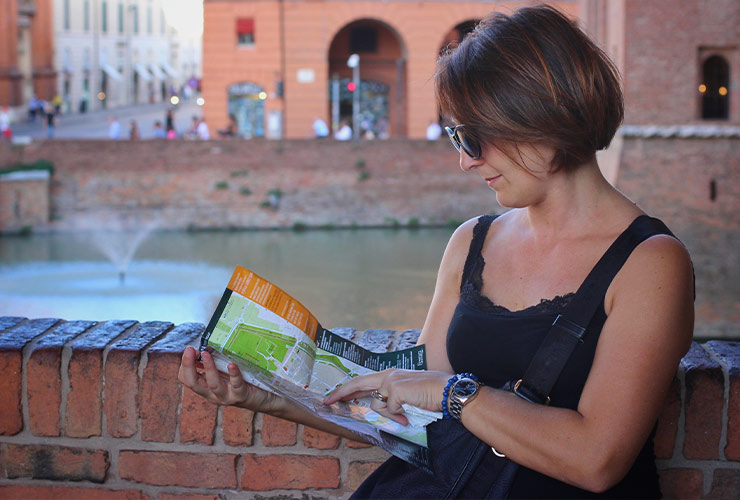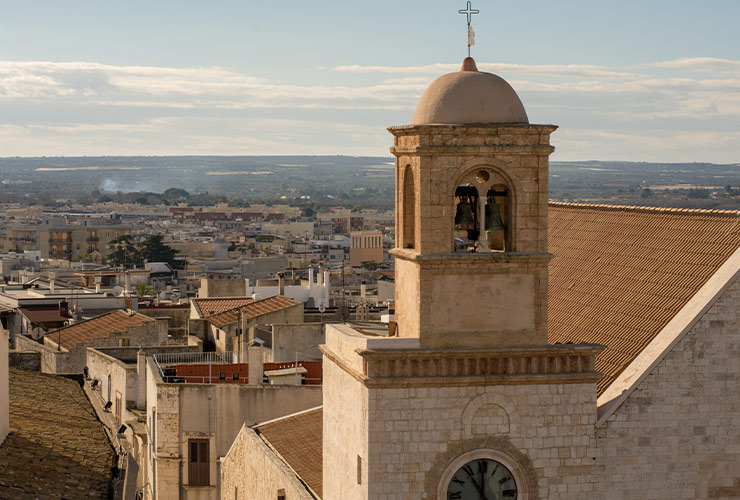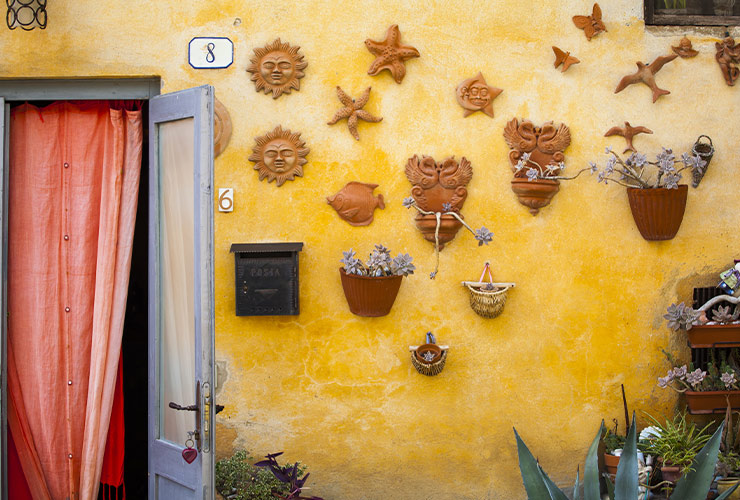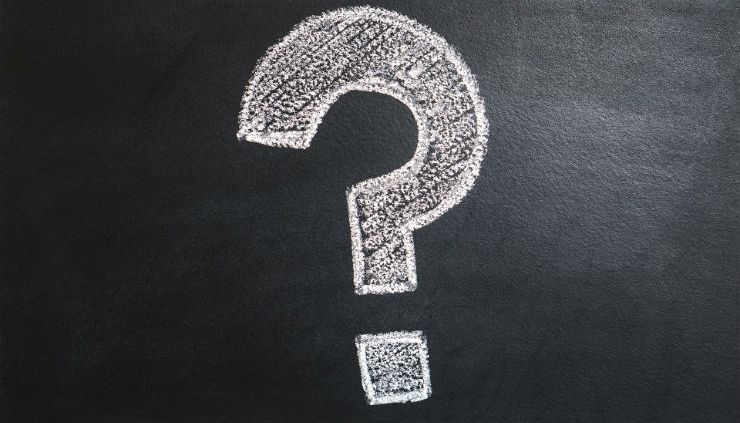What is a question word?
The Italian question words are dove? quando? perché? chi? che cosa? quale / quali? come? quanto? and are called “pronomi interrogativi”. They are used to formulate Italian questions, which is one of the first things that you should learn. They are Pronouns when they replace the name and are followed by a verb or Adjectives when they accompany the name.
Examples:
Che hai fatto ieri? (pronoun) – What did you do yesterday?
Che film hai visto ieri? (adjective) – What movie did you watch yesterday?
If you want to repeat Italian Vocabulary, here there are some useful books for you:
Italian Questions Chart:
| Italian Question Word | Translation | Example |
| DOVE? | Where? |
Dove sei? Where are you |
| QUANDO? | When? |
Quando sei libero? When are you free? |
| PERCHÉ? | Why? Because |
Perché non rispondi? Perché sono occupato Why don’t you answer? Because I am busy. |
| CHI? | Who? / Whom |
Chi sei tu? Who are you? |
| CHE COSA? COSA? / CHE? | What? |
Che cosa stai facendo? What are you doing? |
| QUALE / QUALI? | Which / what |
Quale preferisci? Which one do you prefer? |
| COME? | How? |
Come stai? How are you? |
| QUANTO / QUANTI? QUANTA / QUANTE? | How much / how many |
Quanto costa? How much is this? |
As you can see from the chart, some question words correspond to the English form, while others can have different translations.
But don’t be afraid, it is easier than it seems:
Let’s see the Italian question words in detail, starting from the easiest one!
Dove?

The Italian question word dove translates the question where?.
Examples:
Dove vivi?
Where do you live?
Dove stai andando?
Where are you going?
Dove sono i miei bagagli?
Where are my bags?
Dove sei?
Where are you?
Di dove sei?
Where are you from?
Da dove vieni?
Where are you from?
Per / in ogni dove (formal)
Everywhere (Italian idiomatic expression)
NOTE: If dove is followed by the verb to be in the third person singular (è), the final “e” in dove can drop (dov’è) for pronunciation reasons.
Example:
Dove è la stazione? / dov’è la stazione – where is the station?
Quando?

The Italian question word quando translates the question “when ?”
Examples:
Quando parti?
When do you leave?
Quando tocca a me cantare?
When do I get to sing?
Da quando?
Since when?
Da quanto tempo studi l’italiano?
How long have you been studying Italian?
NOTE: with the third person singular “è” you can write “quand’è” instead of “quando è”.
Example:
Quando è / Quand’è il tuo compleanno? – when is your birthday?
Perché?
Perché translates the question “why?”, but also the answer “because”. It refers to causes and purposes
Examples:
Perché studi l’italiano? Perché è la lingua più bella del mondo!
Why do you study italian? Because it is the most beautiful language in the world!
Perché sei sempre in ritardo?!
Why are you always late?!
Other ways to say perché:
The Italian question word perché can also be replaced from other expressions, such as:
- come mai?
- per quale motivo?
- per quale ragione?
- ecco perché
Examples:
Come mai non vuoi uscire?
Why don’t you want to go out?
Per quale motivo stai piangendo?
Why are you crying?
Per quale ragione odi Antonio? È un vero cretino, ecco perché!
Why/ for what reason do you hate Antonio? He is a real idiot, that’s why!
NOTE: The expression ecco perché is also very used to emphasize the reason or explanation just given, especially in response to a statement or question.
Chi?

Chi translates the question “who?” or “whom” with prepositions. It refers to people or animals and it is invariable.
Examples:
Chi sei?
Who are you?
Chi stai aspettando?
Who are you waiting for?
Con chi vai al cinema stasera?
With whom do you go to the cinema tonight?
Per chi lavori?
Who do you work for?
A chi stai scrivendo questa lettera?
Who are you writing this letter to?
Che cosa? / Cosa? / Che?
The Italian question words che cosa?, cosa? and che? translate the question “what?”
Che cosa or cosa it is followed by a verb.
Example:
Che cosa fai?
What are you doing?
Che can be followed both by a noun (che: interrogative adjective) or a verb (che: interrogative pronoun)
Examples:
Che lavoro fai?
What job do you do?
Che colore preferisci?
What color do you prefer?
Che fai?
What are you doing?
Che vuoi?
What do you want?
In the first two examples above che could be replaced by quale (see below).
In the last two sentences che could be replaced by cosa or che cosa.
Can you understand where to replace che, che cosa or just cosa in the following examples?
Non ricordo che cosa ho fatto ieri.
I don’t remember what I did yesterday.
Cosa vuoi?
What do you want?
Che mangi?
What are you eating?
Che ore sono?
What time is it?
Quale? / Quali?

Quale translates the question “what?” or “which”. It refers to both people and things.
The plural form is quali. It indicates the identity or quality of the name to which it refers to.
Examples:
Quale città italiana preferisci?
Which Italian city do you prefer?
Quale lingua stai studiando?
What language are you studying?
Di quali libri stai parlando?
What books are you talking about?
Qual è / Qual era?
When you use the Italian question word quale with the verb “to be” in the present tense or past tense (è or era), it will be qual without the final e.
Examples:
Qual è la risposta esatta?
What is the correct answer?
Qual era il tuo gioco preferito da bambino?
What was your favorite child’s game?
Quale or che?
Note that quale and che are in many cases used as equivalent forms, in fact the previous examples can be expressed with che. It happens when che / quale is followed by a noun.
Examples:
Che lingua stai studiando?
What language are you studying?
Di che libri stai parlando?
What language are you studying?
In fact, when they have the adjective function or in the indirect questions you can use che or quale. The use of che is perhaps more frequent in the direct questions. However it is not an error to use both, it is just a question of usage!
Examples:
Che libro stai leggendo? (direct question)
What book are you reading?
Vorrei sapere quali sono i tuoi interessi (indirect question)
I Would like to know what are your interests.
Come?
Come translates the question “How?”. It refers to mode.
Examples:
- Come stai? / Come va? (informal) – How are you?
- Come sta? (formal) – How are you?
- Come ti trovi in Italia? – How are you in Italy?
- Come ti chiami? – What’s your name?
Quanto? / Quanta?/ Quanti? / Quante?
These forms translate the question “How much? / How many?”. They refer to quantity and vary in number and gender when followed by a noun.
- The singular form is quanto for the masculine and quanta for the feminine. These forms translate the English question ‘’how much’’.
- The plural form is quanti for the masculine and quante for the feminine. These forms translate the English question ‘’how many’’.
Examples:
Quanto costa quella pizza?
How much cost that pizza?
Quanta pazienza ci vuole?
How much patience does it take?
Quanto mi ami?
How much do you love me?
Quanti libri hai?
How many books do you have?
Quante volte vai al cinema?
How many times do you go to the cinema?
Quanti anni ha?
How old is he?
Idiomatic expressions with Italian question words.

Da quando in qua? Quand’è che…?
These Italian idiomatic expressions can be used in different ways. They can be used as a simple question, but they can also express wonder or irony. You can ask these questions because you are surprised by a sudden change of habit on the person who you know very well (and this fact can impress you in a negative or positive way).
Examples:
Quand’è che sei diventato così presuntuoso?
When did you turn into such an arrogant person? (negative impression)
Da quando in qua sei un appassionato di musica?
Since when you are passionate about music? (positive impression)
Another meaning of these idiomatic expressions can be to express irony or to urge someone to do something.
Examples:
Quand’è che torni?
When are you coming home? (urge)
Allora quand’è che mi porti in Italia?
So, when are you taking me to Italy? (urge / irony)
Studi italiano? Da quando in qua?
Do you study Italian language? Since when? (surprise / irony)
Ma che…, Che…
These expressions can be used to express exclamations of joy or surprise, but also annoyance. They translate the English form what a….
Can you get the difference in meaning between the following sentences?
Ma che bella sorpresa! Grazie!
What a nice surprise! Thank you!
Che rumore! Puoi abbassare il volume?
What a noise! Can you turn down the volume?
Conclusion
Now that you know the Italian question words, you are ready to start a conversation in Italian asking questions to your Italian friends or native speakers in Italy! You can even try to use the idiomatic expressions to sound like a real Italian! What are you waiting for? Go out there and practice!



